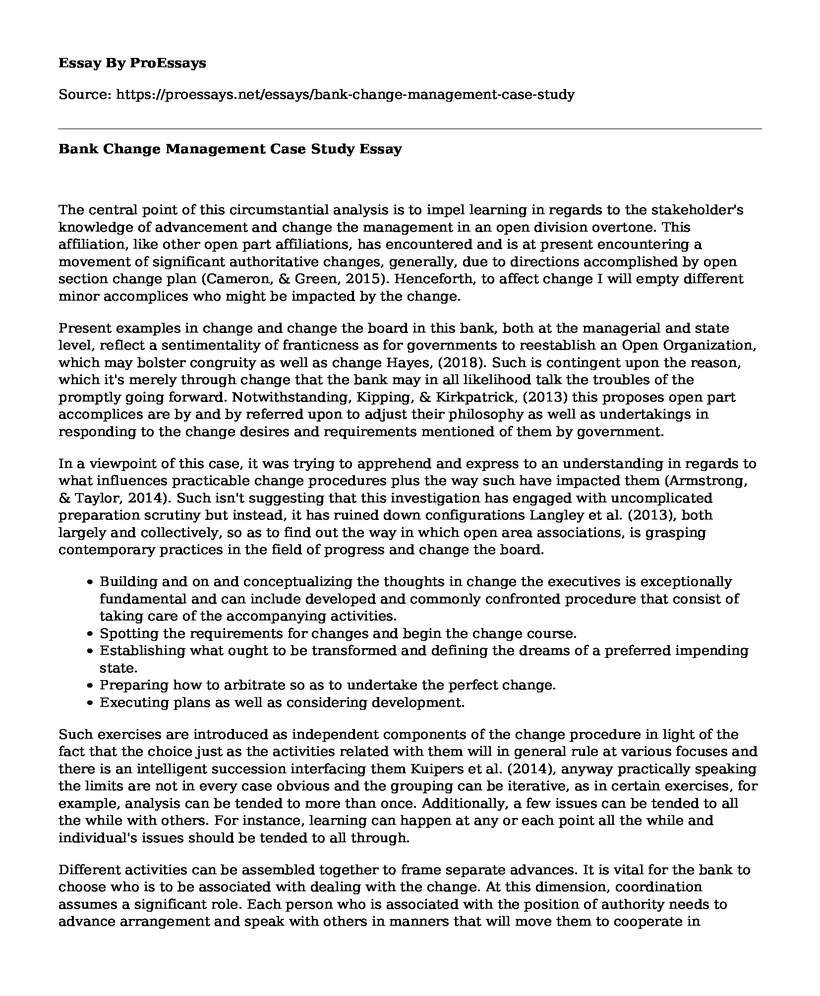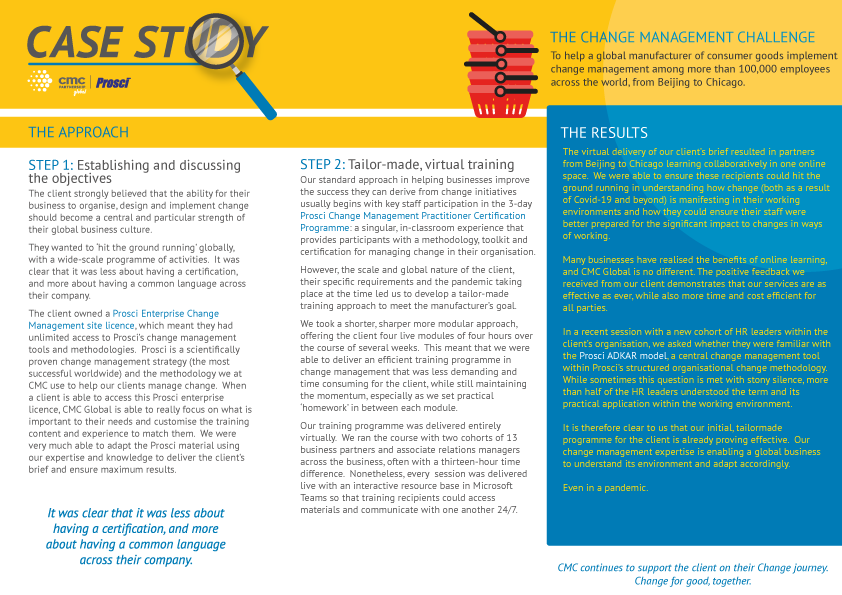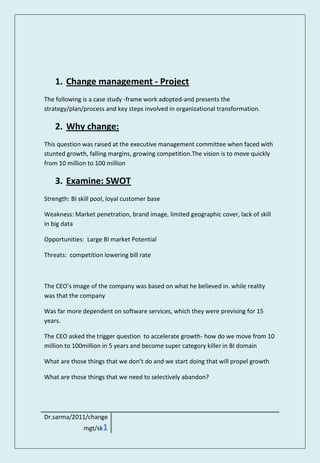Change management is the process of planning, communicating, and implementing changes in an organization. It is a critical aspect of any business, as change is inevitable and can come in many forms, such as new technologies, market trends, or shifts in customer preferences. Effective change management involves identifying the need for change, developing a plan to implement it, and ensuring that the change is carried out smoothly and successfully.
One example of a change management case study is the implementation of a new customer relationship management (CRM) system at a large retail company. The company had been using an outdated CRM system for several years and was facing challenges in managing customer data, tracking sales and marketing efforts, and analyzing customer behavior. The company decided to invest in a new, more advanced CRM system to address these issues and improve customer service.
The change management process began with a thorough analysis of the company's current CRM system and the business objectives that the new system was expected to meet. The company also identified key stakeholders, including employees, customers, and partners, and gathered input from them on the desired features and functionality of the new system.
Next, the company developed a detailed plan for implementing the new CRM system, including timelines, budgets, and resource allocation. The plan also included a communication strategy to ensure that all stakeholders were informed about the change and its impact on their work.
To ensure a smooth transition to the new system, the company provided extensive training to employees on how to use the new system and set up a support team to address any issues that arose during the implementation process. The company also conducted regular check-ins with stakeholders to gather feedback and make any necessary adjustments.
The implementation of the new CRM system was ultimately successful, resulting in improved customer service, increased efficiency, and higher sales. The company was able to better manage customer data, track sales and marketing efforts, and analyze customer behavior, leading to a more personalized and effective customer experience.
In conclusion, change management is a critical aspect of any business, and an effective change management process is essential for ensuring the success of any change initiative. By thoroughly analyzing the need for change, developing a detailed plan, and effectively communicating and implementing the change, organizations can effectively manage change and achieve their business objectives.






